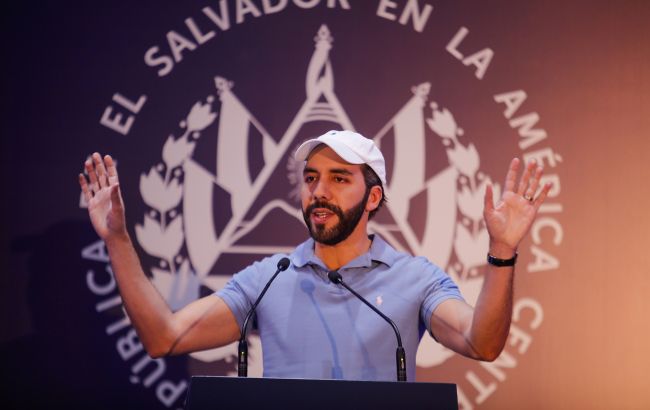El Salvador re-elects President for his fight against gangs
 President of El Salvador, Nayib Bukele (Getty Images)
President of El Salvador, Nayib Bukele (Getty Images)
El Salvador people re-elected President Nayib Bukele for a second term, as he shared on social media that he secured a substantial 85% of the votes in the election. People supported him mostly for cracking down on gangs, making the country safer, according to Reuters and BBC.
Bukele celebrated his re-election with supporters in San Salvador, even though the initial results later revealed that he secured 83%, with only 31% of the votes counted so far.
Bukele's party, New Ideas, is expected to win most of the seats in the legislative body, giving him even more power. He claims they won at least 58 out of 60 seats in the National Assembly. Bukele declared that the opposition was defeated, and he promised to continue improving the country's safety.
The preliminary results, which were later confirmed by the electoral authorities, seemed to support Bukele's claim of a landslide victory. With only 31.5% of votes counted, his Nuevas Ideas (New Ideas) party had almost 1.3 million votes, while the second and third-placed parties were far behind.
"El Salvador went from being the most unsafe (country) to the safest. Now in these next five years, wait to see what we are going to do," Bukele said.
Bukele became popular for his tough approach to gangs, leading to a significant drop in crime rates.
Nayib Bukele
He described himself as "the world's coolest dictator." Bukele came to power in 2019, focusing on eliminating gang violence and boosting the economy. His second term's biggest challenge is expected to be the economy, which has been slow to grow, while a significant number of Salvadorans living in poverty.
But there are also critics of his controversial approaches and power abuse. The win of his party means that one party will have full control in a completely democratic system, leaving no room for opposition.
Moreover, human rights groups say that during his anti-gang efforts, thousands have been arrested without clear reasons. Around 75,000 people have been arrested under emergency measures, and Amnesty International criticized the shift from gang violence to what they call "state violence."
There is also controversy around Bukele's re-election bid because, according to the constitution, he shouldn't be allowed to run for a consecutive second term. However, the constitutional court, which is mostly made up of his supporters, allowed a president to run again as long as he stepped aside before the second term began. Bukele technically stepped down as president a few weeks ago to meet this requirement and will be sworn in again in June.

